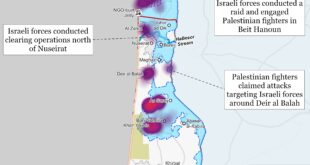Turkey is rich in fertile land, water and skilled farmers. But its agricultural industry is in sharp decline, blamed by critics on failing government policies, spiralling costs and meagre state support.
For five generations, Ahmet’s family has farmed the rich agricultural land of Thrace in northwestern Turkey.
On 15 acres, the family for years grew sunflower, sugar beet and wheat.
But, said Ahmet [not his real name], “over the last 10 years we stopped producing sugar beet and wheat and now we only farm half our land because of the high costs and the lack of support from the government.”
“Now, every day new farmers choose not to go on,” he told BIRN. “You can see this in the production and the rising prices at the market.”
Once one of the world’s agricultural giants, Turkey is now struggling to feed its own people due to what experts and farmers say are the mistaken policies of the government under President Recep Tayyip Erdogan and the lack of state support.
Last year, according to official data, the country imported 9.75 million tonnes of wheat, more than any other country in the world.
Farmers, meanwhile, are laying down their tools.
According to the state statistics agency, TurkStat, over the last decade the number of farmers in Turkey has plummeted by almost a half, from 1.1 million in 2010 to 568,000 in 2020, while the country’s agricultural land decreased by more than 18 per cent between 2002 and 2020.
Sedat Baskavak of the All-Producer Peasants’ Union, TUMKOYSEN, cited falls in the production of a range of foodstuffs, at a time when skyrocketed from some 65 million in 2002 to roughly 83 million today.
“Production did not increase,” he said. “On the contrary, it decreased or remained the same.”
“When we consider the decreases in production and the increasing population the catastrophic results can be better understood,” Baskavak told BIRN. “The UN, experts and opposition were warning the government that these kinds of policies might lead to a food crisis, as we are experiencing today.”
Mounting debts
Food inflation in Turkey stood at 20 per cent year-on-year in February, according to the Confederation of Turkish Trade Unions, TURK-IS.
But farmers say the government is doing too little in terms of subsidies and other support to spur production.
“The support from the government decreases every year but the cost of production increases dramatically,” said Yasar Akcali, a farmer from the Aegean region of Manisa, one of the country’s main agricultural centres.
Producing high-quality grapes and olives, Akcali accused the government of failing a requirement under Turkey’s European Union accession process to earmark one per cent of the state budget for farmers, a claim the government disputes.
“Fifty kilograms of fertiliser today costs 181 liras but it was 35-40 lira five years ago,” he told BIRN. “I was paying 4,000 liras for fertiliser last year but this year I paid 9,000. It’s the same for agricultural pesticides. Every year the cost is doubling but the support for farmers is decreasing.”
He scoffed at the state provision of 375 liras-worth of diesel and fertiliser.
“This money can’t fill up my tractor’s fuel tank even once,” he said. “The government doesn’t do anything and it cannot do anything. They only look to save the day, instead of coming up with long-term strategies.”
Turkey’s main opposition Republican People’s Party, CHP, says the debts of farmers have soared.
“During the rule of [Erdogan’s] Justice and Development Party, AKP, our agricultural imports total about 110 billion dollars, while our exports are around 80 billion dollars, leaving a deficit of 30 billion dollars,” CHP deputy Ayhan Barut, an agricultural machinery engineer, was quoted as saying by Duvar English. “Our farmers’ debt has increased by 72 times from 2.5 billion to over 180 billion [lira].”
Migration to cities
Ahmet, who spoke to BIRN on condition he was not identified by his real name, said Erdogan’s government had chosen to import rather than support Turkish farmers. He also cited the privatisation of public companies.
“Public sugar factories in [the northwestern cities of] Edirne and Kirklareli were our main customers for sugar beet but the government sold them in the early 2010s and after a short time these companies were closed,” said Ahmet.
“In 2018, the government started to sell their lands and properties very cheaply to fill up the state budget but the farmers and sugar production lost everything.”
Baskavak said the rural population of Turkey had dropped 12 per cent since Erdogan came to power in 2002, support for farmers was cut and tariffs barriers for agricultural products were lifted.
“What we experience today is the result of these policies,” Baskavak told BIRN.
Both Ahmet and Akcali said they knew of many fellow farmers who had sold up, and others who were planning to sell to pay off debts.
“Farmers don’t want to farm because the costs are higher than the profit,” said Ahmet. “Many of our colleagues stopped farming and migrated to larger cities or they started to work in factories. If the situation continues like this, I see no other option than to sell my land too.”
Akcali said he was motivated by more than simply earning a living, but even that might not be enough.
“I want my children and grandchildren to see nature, our lands and our culture when they visit us in our village,” he said. “This is the only reason why I continue farming. If the government does not share at least the half of the cost we cannot even talk about profitability.”
“The core of development is agriculture,” he told BIRN, yet today, “the Netherlands, smaller in size than the Konya Plain [in central Anatolia], is leading global agriculture while Turkish agriculture, which has vast land, water and nature, is collapsing.”
 Eurasia Press & News
Eurasia Press & News



